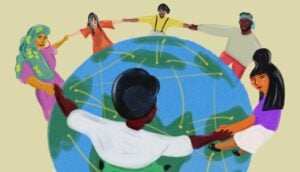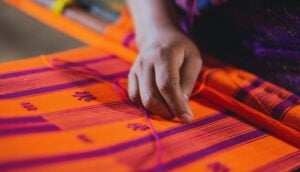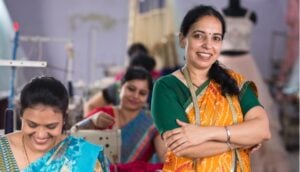Social entrepreneurs are made, not born.
Starting a social change career is a do-it-yourself activity. Before we can be status quo disruptors, we need to learn to be disruptive forces in our own lives.
“You have to start your career thinking about who you want to be as a person. There is no substitute for spending a serious amount of time working in local organizations,” advises John Anner, Executive Director of the East Meets West Foundation.
As the social entrepreneurs in How-To Start Your Social Change Career explain, community service is a selfish act of self-improvement. You live your future career as it actually will be. You build practical, durable skills. You increase your market value as a change agent. Most of all, you embed for life whose side you are on in the timeless struggle for social and economic justice.
“We need to have field experience, especially in economic justice work. We need to experience what economic injustice looks like,” insists Vini Bhansali, CEO of theInternational Development Exchange (IDEX).
In high school when I volunteered as a tutor in a low-income San Francisco neighborhood, I learned as much as I taught. A fifteen-minute public transit bus ride transported me into a new and fascinating world. I saw with my own eyes the racial and economic class tracking, segregation and isolation which scars America. To this day, some 50 years later, I regret not being a better tutor, a better listener and a better friend to young boy whose name I wish remembered.
From social psychology we know peer pressure, social habits and unspoken societal norms are the invisible bedrock of every community. People are less likely to litter if no one else does; conversely, graffiti invites more graffiti.
The power of community to invoke, instill and inspire social and economic justice values depends on you. In whatever community you choose to live and work, you are irreplaceable because your every action – or inaction – is a role model for others.
No wonder Kenya’s Wanjiru Kamau-Rutenberg, Founder/Director of Akili Dada, prods and pokes us to get moving, “Don’t wait for permission. No one is going to come along and say Here’s Your Permission.”
The most meaningful things in life are best done in person. Sex, for example, is more enjoyable if you’re there when it happens. Likewise, social entrepreneurship means personally showing up, being engaged, a hands-on commitment.
Tiffany Persons, Founder/CEO of Shine on Sierra Leone concludes, “Find a very small organization and fully immerse yourself in the culture that you want to work with…be with them, talk with them, listen to them.”
This article was first published on Huffington Post and is reproduced with the permission of the author.
Follow Jonathan Lewis on Twitter: www.twitter.com/@CafeImpact










